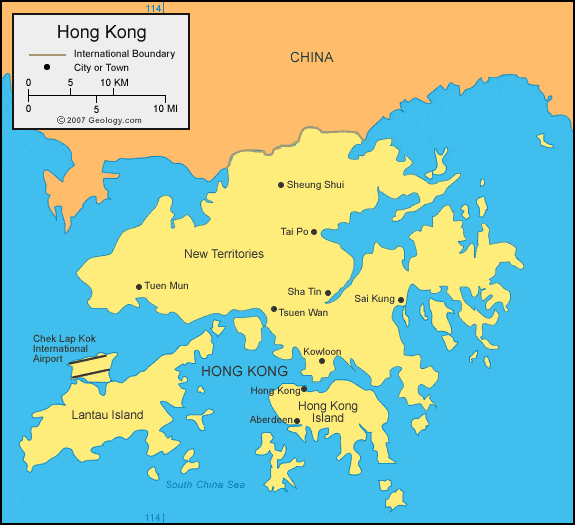International Relations
UK Visa Scheme For Hong Kong Residents
- 02 Feb 2021
- 6 min read
Why in News
Recently, the UK has launched a special visa scheme that will allow the Hong Kong residents a chance to migrate and eventually apply for British citizenship.
- The move came months after China imposed a national security law over Hong Kong enabling it to curb the 2019 pro-democracy like protests in future and also to override the powers of the government in Hong Kong.
- The move is considered the UK’s most generous welcoming of foreign workers since the entry of new European Union (EU) citizens in 2004 - when 10 countries were added to the bloc - at a time when the UK was also a member. The UK officially left the EU on 31st January 2020.
Key Points
- Background:

- Since July 2020, after the national security law was implemented, the British government has already allowed around 7,000 people from Hong Kong to move to its shores.
- These were allowed permission to migrate not through the visa scheme, but through government action on compassionate grounds.
- In response to the Law, Australia, Britain and Canada have also suspended their extradition treaties with Hong Kong.
- Conditions for the Special Visa Scheme:
- The visas will be issued to those in Hong Kong holding a British National (Overseas) passport and their immediate dependents, and will offer a fast track to UK citizenship.
- Applicants who get the visa can live and work in the UK for 5 years, after which they apply for settlement. Twelve months after this, they can apply for citizenship.
- Reason for Announcing Visa Scheme (National Security Law):
- Threat from National Security Law: China implemented new national security law for Hong Kong, that could impose the People's Republic of China's arbitrary and opaque criminal system onto the Hong Kong common law system.
- National security act is seen as breach of the Basic Law, the mini-constitution which defines ties between Hong Kong and Beijing (China’s capital).
- Provisions of National Security Law:
- Crimes of secession, subversion, terrorism and collusion with foreign forces are punishable by a maximum sentence of life in prison.
- Damaging public transport facilities can be considered terrorism.
- Those found guilty will not be allowed to stand for public office.
- Establishment of a new security office in Hong Kong, with its own law enforcement personnel - neither of which would come under the local authority's jurisdiction.
- Hong Kong will have to establish its own national security commission to enforce the laws, with a China-appointed adviser.
- This office can send some cases to be tried in mainland China.
- Hong Kong's chief executive will have the power to appoint judges to hear national security cases, raising fears about judicial autonomy of Hong Kong.
- China will also have the power over how the law should be interpreted.
- Threat from National Security Law: China implemented new national security law for Hong Kong, that could impose the People's Republic of China's arbitrary and opaque criminal system onto the Hong Kong common law system.
- UK’s Stand:
- The imposition of the security law “a serious and clear breach of the Sino-British Joint Declaration”, referring to a 1984 treaty between the two countries.
- Under the Treaty, China promised to honour Hong Kong’s liberal policies, system of governance, independent judiciary, and individual freedoms for a period of 50 years from 1997.
- The imposition of the security law “a serious and clear breach of the Sino-British Joint Declaration”, referring to a 1984 treaty between the two countries.
- China’s Stand:
- China criticised the UK move. The British side disregarded the fact that Hong Kong returned to China 24 years ago.
- China also said that it would no longer be recognising BN(O) passports, saying that the citizenship offer “seriously infringed” on China’s sovereignty.
The Handover of Hong Kong from Britain to China
- Hong Kong was formerly a British colony and was handed over to mainland China in 1997, becoming one of its Special Administrative Regions (SAR).
- It is governed by a mini-constitution called the Basic Law, which affirms the principle of “one country, two systems”.
- The constitutional document is a product of the 1984 Sino-British Joint Declaration, under which China promised to honour Hong Kong’s liberal policies, system of governance, independent judiciary, and individual freedoms for a period of 50 years from 1997.
Way Forward
- The present Visa regime will enable the people of Hong Kong to evade the secretive, authoritarian and coercive actions of China under national security act, however long term solutions can be attained by arbitration and conciliation with all the stakeholders to secure the interests of people of Hong Kong.
- National security law endangers Hong Kong’s position as an East Asian trading hub, and along with the UK's action it should invite global criticism for Beijing, which is already being accused of withholding key information related to the Covid-19 pandemic.






